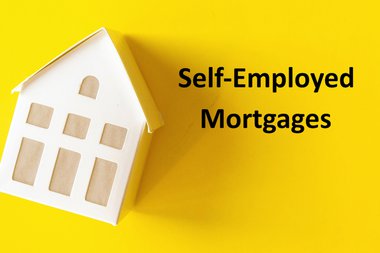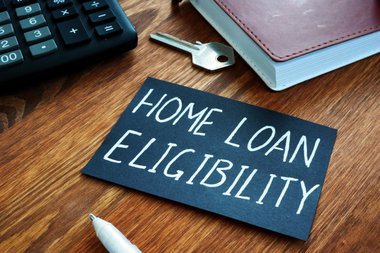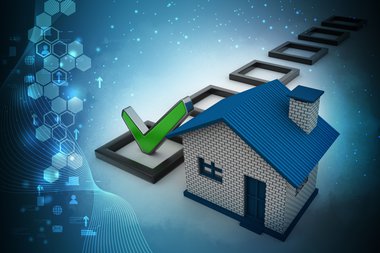Self Employed Mortgage
Clover Mortgage Helps Self Employed Workers And Entrepreneurs Get Approved For A Mortgage Or Home Refinancing Even If The Banks Say No!
What Is A Self-Employed Mortgage?
A self-employed mortgage is a residential mortgage on a home, or a commercial mortgage on a commercial property owned by or being purchased by someone who is either self employed or owns their own business or corporation. Because self-employed Canadians have a different type of way of declaring their earnings than salaried employees who are employed full-time or part-time, their declared net income is not always large enough to qualify for a traditional mortgage at the banks in Canada.
In our world these days, more and more Canadians are leaving their 9 to 5 careers, breaking free from the corporate handcuffs, and starting up their own businesses to enjoy and benefit from the multiple rewards that exist when you work for yourself. Rewards and benefits like flexible employment hours, endless growth opportunities, writing off business expenses, no corporate politics to navigate, and most importantly, tax benefits and rewards. Major cities like Toronto, Ottawa, Mississauga, Oshawa, Oakville, Brampton, and other growing parts of Ontario are at the centre of this shift.
It should not come as news to most people that preferential tax treatment for self-employed workers can help those individuals save tens of thousands of dollars a year in income taxes. With many types of acceptable legal tax write-offs for business related expenses such as corporate education, business lunches, transportation expenses, and more, people can save a lot by being in business for themselves. These savings are at the centre of why many people incorporate themselves as their own business. It is one of the top reasons for making this decision
If you are incorporated, in some cases you can even compound the savings at a much lower tax bracket than an individual taxpayer. If you haven’t already, we recommend that you speak with your accountant to learn more about the potential tax rewards of being self-employed. You can also visit our content on our blog about Business Taxes, but do not make any personal or business decisions based on the blog content, speak with your accountant first. We are mort
Although the benefits and rewards seem endless, there is one pitfall that most self-employed Canadians face time and time again. Given the recent changes to mortgage rules, mortgage financing for a self-employed individual through major Canadian banks can be a very stressful experience. Even when all of the borrower’s personal and business accounts may be at a specific bank, they often times still get rejected. This is at the centre of the growing frustration consumers are having towards today’s banking system in Canada. This accounts for much of the dissatisfaction felt by many Canadians towards their banks today due to the long and often times broken application process.
Canada needs a common sense approach to being approved for a mortgage while being self-employed. Thankfully, Clover Mortgage has professional mortgage brokers and agents standing by who can provide the helping hand you need to get a mortgage reserved and secured without having you pay a huge tax payment to Revenue Canada.
Stated Income mortgage would serve the situation best where self-employed income is being used. Even for customers with bad credit, Clover Mortgage works with many lenders who do not need a credit check and who are not required to follow the same strict rules as banks do.
A lender who accepts stated income mortgages takes into account other sources of income and will accept methods of proving income that may not have been properly declared on an applicant’s tax returns. If you can show business contracts with customers, banking statements that show additional cash going into your personal or business bank account, internal financial statements, financial plan, internal accounting records, and other forms of income verification that most banks will not consider. Even a bank account from other parts of the world may be considered by certain lenders.
A stated income mortgage can be used by a self-employed borrower as a first mortgage for the purchase or refinance of a home, or as a second or third mortgage to consolidate debt like credit cards or pay for home renovations, travel, a child’s education, and other expenses.
At Clover Mortgage, we have access to over 40 national and local lenders across Canada including major banks, alternative mortgage lenders, and private mortgage lenders. So you don’t need to travel far to get the mortgage that you need.
Whether you need a mortgage to consolidate multiple payments on credit cards into one simple monthly payment, or you are using it as a payment for buying a new real estate property, many of these lenders will gladly accept you as a stated income applicant. These lenders will provide you with great competitive variable or fixed mortgage rates and great term options, depending on various other factors. Even some of the major banks that we work with are starting to accept stated income mortgage applications. Contact us by email, phone, or through our online “Contact Us” form to learn more.
If you are self-employed or a partner or owner of a business, then many banks will not approve you for a mortgage or home refinancing, even if you are a AAA client. Because you might be reporting your income in a non-conventional way to save on income tax, the banks will often times put you through a long and tedious process only to reject you at the very end of it. Securing a mortgage while being self-employed can be a bit more challenging but it is achievable. With the right guidance from a trusted mortgage agent at Clover Mortgage, you can get approved easily and get AAA rates from one of the over 40 lenders that we have the ability of working with.
How Does A Lender Calculate A Self-Employed Person’s Income?
To calculate someone’s income, most banks, such as Scotia Bank, and other conventional lenders only take into account the average of the most recent two years of income declared on line 150 of the borrower’s two most recent tax returns. A lender that is accepting of stated income mortgage applications will in many cases consider the average of the last 2 years of your gross reported income before tax write-offs. In certain cases, select lenders will accept looking at your other sources of income including income from side jobs like Uber driving income, cash income, and more. The “Gig Economy”, as it was described in a recent news article form 2019 that you can read in Fortune Magazine, needs more effective options when applying for a mortgage. At this rate, this new gig economy might become the centre of the working world.
Many types of lenders will take your credit history and credit score into account when reviewing your application. If you have high outstanding debts or balances on your credit cards, plan on either paying them down as much as possible before applying for the loan. You can also potentially use part of the proceeds from your loan to consolidate debt, like you would in a debt consolidation mortgage. A lender can view high outstanding debts as an increased risk to their investment.
One of the key advantages to being self employed or owning a corporation in Canada is that you are able to write off certain legitimate business expenses, such as business travel, business legal expenses, corporate education, and business meals, that might accumulate on your personal or corporate credit cards. A regular salaried employee does not typically have access to the same rewards.
The up side to writing off these expenses if that you can save on the amount of income tax that you pay. The down side is that when applying for a mortgage or loan through a bank, this will limit the size of mortgage or loan that you can qualify for and the interest rate discount that a bank might give you.
Here Are Two Examples Showcasing The Different Ways That The Income Would Be Calculated For A Stated Income Mortgage Application Vs A Traditional Mortgage Application For A Self-Employed Borrower At A Bank.
Go ahead and get a calculator if you need one.
Let us pretend that you are buying a new home. Let’s say that you earned $150,000 in income last year, and wrote off $110,000 in expenses, then you would be left with a net income of $40,000. That is the number that would appear on line 150 of your T1 General tax return.
Let us also pretend that in the previous year you earned $120,000, due to slightly slower sales, and deducted $90,000 in expenses, the line 150 of your tax return would show $30,000 in net income.
Since most traditional banks, such as Scotia Bank, will take the average of the net income you reported for the two most recent years, your qualifying income would only be the average of $40,000 and $30,000, which equals $35,000. This kind of income will not qualify you for much of a mortgage, if any mortgage at all, simply because it is unlikely that you will be able to afford to pay the mortgage.
Let’s say that you earned the same $150,000 in income last year, and wrote off the same amount of expenses, $110,000, leaving you with the same $40,000 in declared net income.
For the year prior, you also earned $120,000 and deducted $90,000 in expenses, leaving you again with $35,000 in declared net income.
Since mortgage lenders who accept stated income applications understand that your tax fillings will be in the interest of saving money on your taxes. As a result, these lenders will consider the gross income you earned before your writing off expense deductions and other tax write-offs.
In this case the lender will calculate the average of $150,000 and $120,000 which equals to $135,000. Now you can qualify for a real mortgage and obtain competitive mortgage rates and mortgage terms (depending on other factors that the lender will review).
In addition to the gross income that you reported, you might also be allowed to use other income sources such as cash income, Uber income, and more, on a case by case basis.
This is why it is important to select a lender that specializes in stated income mortgages and self-employed mortgages would likely be a better choice you if you are self-employed. Some lenders have special offers for low mortgage rates for self-employed individuals.
If you have less than perfect credit, then Clover Mortgage has lenders who we work with that specialize in lending mortgages to individuals who are self-employed and who have less than good credit or high debt to income ratios due to unpaid debts or high balances on their credit cards. Certain lenders who we work with do not even press the borrowers or buyers for a credit check.
Is It Hard To Get A Mortgage If You Are Self-Employed?
Although getting a mortgage while being self-employed shouldn’t be difficult, at a bank it can be harder and more stressful than it would be for a salaried or hourly full-time employee. Most lenders require a borrower to submit documentation detailing their income, net worth, credit score, and much more. Self employed individuals do not get a T4 outlining their annual income so they must provide the lender with a Stated Income Application that most of the conventional banks will not accept. Stated income is the amount a person claims to earn and it must be proven through a variety of documentation.
Although a lender cannot exactly calculate and verify to 100% certainty the income of a stated income mortgage application, the more proof you can provide the better your odds are of getting approved for a great rate.
Mortgage Affordability Calculator
How Does A Self-Employed Person Qualify For A Mortgage In Ontario?
Listed below are some of the documents that might be required to be considered:
While many lenders will require 1 to 2 years of your most recent T1 General tax returns and Notice of Assessments. Those are not always must haves since certain lenders may not have that as a requirement. This is why it is important to work with a qualified and experienced professional mortgage broker or agent. Their services can help you qualify for the mortgage loan you need.
At Clover Mortgage, we specialize in helping our clients search for quick and easy alternative lending solutions at the lowest competitive rates and best terms available to them. Self-employed mortgages and stated income mortgages are just one of our specialties.
The government of Canada has rights over your property and one of those rights allows them to place a registered lien on your commercial property or home for unpaid taxes, and that registered lien will come in priority over any mortgages. This is why most lenders would like to see your Notice of Assessment or see another type of proof that you have paid all of your personal taxes and have no back taxes owing.
These assessment notices will just help confirm that no taxes are owed. With alternative and private lenders, the income on these notices will not be considered since the income stated in this assessment is net income after deductions.
If you are incorporated or want to try to have the lender accept business income in addition to your personal income, providing documents such as banking statements or statements of accounts showing that there this is in fact an additional source of revenue may help you qualify for a higher mortgage at a lower rate. From the lender’s point of view, he bases the interest rate and terms on the perceived risks associated with a borrower and their property.
Showing personal banking statements that can help a lender see additional income going into your account from other sources. This may also help you qualify for a higher mortgage amount at lower fixed or variable rates, since lenders want to see where your numbers are coming from. With this information a lender will also use a financial calculator to calculate their own understanding of what your true income is. Based on the findings, they will determine if the borrower qualifies, how big of a mortgage do they qualify for, and what interest rate and terms should the borrower be offered.
If you are a business owner or if your company is incorporated, many lenders will ask you to provide a copy of your business licence or your articles of incorporation for them to see and review. The articles of incorporation should list you as one of the owners. These articles are only available if your business is incorporated.
Some lenders will even go as far as looking at your future expected income. If you are able to show that you have valid sales contracts or work order that both you and the customer sign, then certain lenders that Clover Mortgage works with will consider your future expected income too. This may further help you qualify for a larger mortgage amount.
If you have great credit, then you would be better off going with a lender who uses a borrower’s credit to determine their worthiness of getting a self-employed mortgage. These types of lenders with whom a credit check is a must, typically offer lower variable or fixed rates than lenders who do not require a credit check.
If however, your credit is bad, or you have past bankruptcies in your life, or you have high balances on your credit cards and other debts, then an alternative or private mortgage lender might be your best choice, despite the added lender fee. A private lender will typically offer a 1 year term or 2 year term, but some will have different types of offers regarding term lengths and their fee structure. Please contact us through our online Learn More or Apply Now button, or by phone or email.
Yes. You can qualify for a mortgage to buy a new house even if you are self-employed. The services of a qualified mortgage broker can help find the right lender who will allow you to apply through a stated income mortgage program. Your Clover Mortgage broker will then help you gather the required documentation to help prove the true income that you say you are earning.
Your privacy is our top concern. Our lenders also respect your privacy and all income and credit information that you provide to your us and your mortgage broker is strictly confidential. Our lending partners adhere to the same strict privacy policy that we do. None of your private income information is shared with Revenue Canada or anyone else. Also, all of your original documentation will be returned back to you upon the financing of the loan, and only copies of the documentation will be kept by the brokerage. If the brokerage does not follow this policy and does not on their own accord give back your original documents, you can request to get them back.
In many cases self-employed individuals should be prepared to be offered a higher interest rate than most regular applicants in the same financial situation. That being said, a strong applicant with good credit and a 20% or greater down payment will most likely receive a better rate than an applicant who is a full-time employee and can provide a T4, but who might have slightly worse credit. You might also qualify for the lowest AAA interest rates if you have your mortgage insured through an insurance provider such as the CMHC.
Plan on having a good credit score. Ensure that you are always on time when making each payment for your other debts and bills, and that the balances on your credit cards are low can also help you qualify at a lender that will offer you lower fixed rates and variable rates to select from.
What Are Some Of The Pros And Cons To Applying For A Mortgage If You Are Self-Employed?
The team here at Clover Mortgage believes that you should not be penalized because you are self-employed. We work hard and try our best to ensure that you obtain the best possible mortgage terms and the lowest rates, both variable and fixed, that are available to you. We know how important this is to you and we are dedicated to helping you achieve your mortgage and housing goals.
Here is a list of a few pros and cons associated with a self-employed mortgage:
Pros Of A Self Employed Mortgage:
- Save Money on Taxes through a self-employed mortgage:
As a self-employed individual, you have the advantage of saving thousands, tens of thousands, and even hundreds of thousands of dollars a year in taxes. With a self-employed stated income mortgage, you can continue saving on your taxes while still being able to qualify for competitive fixed mortgage rates and variable mortgage rates and higher mortgage amounts through the alternative lending channels available to you through the services of your Clover Mortgage broker. - Approvals that are easy and quick with a self-employed mortgage:
Rather than waiting for weeks or even months to get approved, or worse – denied by your bank, you can get approved for a stated income mortgage within a matter of hours. Once your mortgage application is submitted to Clover Mortgage, we can get you an approval response that same day in many cases. Depending on the complexity of your loan, certain lenders will even be willing to lend to you, finance your mortgage, and close on the deal in as little as 48 hours from the time that your application is submitted. These lenders are able to make and act on mortgage investment decisions quickly.We even have lenders who will approve and lend to an applicant without a credit check. These types of lenders do not view credit as being a determining factor when considering approving mortgage applications. So even if you have horrible credit, or credit, or are carrying high overdue balances on your credit cards, you may still be able to qualify for a variety of mortgage loans. Let Clover Mortgage help find the solution that’s right for you. - Qualify for a higher mortgage amount with a self-employed mortgage:
You can qualify for a much higher mortgage amount through a lender that accepts stated income mortgage applications from self-employed borrowers and home buyers, as opposed to a traditional national banking institution that in many cases will only consider your declared net income after deductions. - Get the best rates and lowest rates with a self-employed mortgage:
Certain mortgage lenders offer special low rates and terms specifically tailored to help self-employed Canadians get a mortgage. If you are able to save up a large enough down payment, provide a high enough provable stated income, or get insurance through the CMHC mortgage insurance program, you can even help you qualify to obtain the lowest and best mortgage rates. Depending on the premium vs the rate savings, this may prove to be a wise investment. Your mortgage broker can help calculate this and advise you accordingly or they can help you navigate an online calculator or a set of calculators if you prefer to learn how to do the calculations yourself.
Cons Of A Mortgage As A Self-Employed Individual:
- Might not qualify at a traditional or national bank:
Although some traditional lenders and banks have opened up to accepting stated income applications from self-employed buyers and borrowers, the majority of those programs might still be too limited for you to qualify for the mortgage amount you need. If that’s the case, Clover Mortgage has many other lenders who have much more flexible stated income mortgage programs. - Higher than conventional mortgage rates:
Since lenders generally prefer to have less risk, and these lenders may be taking higher perceived risks when granting a mortgage to a self-employed individual, the mortgage rates tend to be higher than the lowest rates offered through monoline lenders and Canadian banks. Also, if you have had bad financial luck in life and have high balances owing on your credit cards or other debts, this might further affect the interest rate you qualify for. In fact, carrying a constant balance in excess of 30% of your credit limit on credit cards and another revolving credit account can have a substantial negative impact on your credit score. A lender’s main concern is that you will be able to afford each month’s mortgage payment.However, as mentioned previously, if you are able to prove a high enough stated income, get your debts such as credit cards under control, provide a high enough down payment deposit, or you can ensure that you have insurance on your mortgage through CMHC, then you may very well be able to qualify for those great low mortgage rates. As per a recent 2019 mention in the news on Forbes online where you can go to read it, the unconventional mortgage market is growing, largely due to the number of people who are choosing to go the self-employed route in Canada. Our goal is to help you get the most from your mortgage while paying the least amount possible for it.
Frequently Asked Questions (FAQ) About Getting A Self-Employed Mortgage
This is probable the most popular FAQ. Yes you can. At Clover Mortgage we can process a pre approval for you even if you are self employed. Also, you pre approval rate will be guaranteed for up to 4 months (12 weeks).
This is a another common FAQ. If your first mortgage has insurance through CMHC Insurance or Genworth Insurance, two insurance companies that insure mortgages in Canada, you may be able to qualify for a mortgage of up to 90% of the value of your home. If you choose to get the mortgage without insurance from CMHC of Genworth, then you may qualify for up to 80% of the of the purchase price of your home or the current property value for and existing homeowner home refinance. Certain conditions may apply depending on various other factors, but insurance can be a great way to get the lowest rates.
If you declare a low net income on your tax returns, but you are able to provide proof that shows you earn more, then you might still be able to qualify for a mortgage through a lender that accepts stated income applications. By showing strong proof of your income, you will at least be helping the lender feel more at ease about granting you your loan. Your Clover Mortgage agent can help you with this.
Here is yet another common FAQ. Although stated income mortgages are seen as having more risk associated with them than a traditional first mortgage, there are still ways to get approved for the best triple “A” rates and to obtain great term options form lenders. By providing a higher down payment, providing very strong proof of your income, or having insurance for your mortgage through a company like CMHC, you can increase your chances of qualifying for the lowest rates and term choices. If you also have a strong credit score and low debt ratios on your credit cards, outstanding education loans, and other debts, than this will go towards helping you qualify for the best rates.
Yes. You can apply for a mortgage refinancing, a first, second and even third mortgage as a self-employed borrower using the different stated income programs offered by various types of lenders. You can use the money to pay down and consolidate your higher interest debts, such as high interest credit cards, student and education loans, car loans, and more. By consolidating your high interest debts into one lower monthly payment, you will free up additional cashflow that you can use towards paying down your total debt.
You can find a debt consolidation calculator online to help you calculate what kind of second mortgage you may need. Use our home equity calculator tool to help you understand how much equity you have available that you can use towards a second mortgage. Use our mortgage refinance calculator to help get a better understanding of how large of a home refinancing you can qualify for, while our mortgage affordability calculator can help you determine what kind of mortgage payment you can afford.
Our team of Clover Mortgage brokers work with many different types of lenders. We have lenders that will approve self-employed workers for mortgage loans without needing to check their credit. That means that even if you have overdue balances on your credit cards, no history of any credit cards, outstanding loans for education, a past bankruptcy or default, a past consumer proposal, or whatever your credit issues might be, we have mortgage lenders who understand that things happen in life that can put us in a tough spot financially. They know that you still need housing and they are happy to work with you to help you achieve that.
In fact, depending on how much cash you need for the actual mortgage and how much of a loan you would qualify for, you might find that you are able to access enough equity to put some of the money towards paying down your higher interest debts, such as credit cards, car loans, education and student debt, and more.
Here Are A Few Helpful Tips To Help You Qualify For A Mortgage As A Self Employed Individual.
Sometimes it is difficult to know what to do when you are trying to get approved for a mortgage or home refinancing loan. These tips will help you get started in the right direction and get to the centre of your mortgage needs.
- Always speak with a trusted mortgage broker. At Clover Mortgage, our services help empower our clients with useful tips and help guide them through the process of getting approved for a mortgage. Understanding your needs is at the centre of our business. Skip the calculator and let us help you calculate important information and prepare the different documentation that will be required to get you approved. An experienced mortgage agent or broker can make turn the difficult into simple.Your mortgage agent will ensure that you are aware of, and fully comfortable with, all of the terms and conditions of your mortgage before you sign. The broker will help give you a clear bird’s eye view of the situation.Contact us for a free no obligation mortgage consultation by clicking on the Learn More or Apply Now buttons, or by filling out the Contact Us for below.
- Calculate twice, apply once. To save you time and to take the stress out of the application process, you should be certain about your calculations before submitting an application to a lender. You can use a calculator to calculate everything yourself, or you can use the helpful services of an experienced mortgage broker.If you are applying for a home refinance, it is important to calculate the amount of available equity that you have in your property. There are several online tools and calculators to help you, or you can turn to an experienced mortgage broker. They will help guide you through this, or if you already know the accurate fair market value of your home, rather then you using a calculator or multiple online calculators yourself.As someone who is self employed, you should also calculate all of your provable and acceptable income. Your Clover Mortgage agent will help you to do this as they will know what kind of income and proof will be accepted by which lenders.
- Less risk, less interest. Mortgage rates increase as the risk for default increases. Your mortgage agent will help present your case to the lender in the best light possible while remaining honest and acting with integrity. It’s your broker’s job to gather the right information and make the lender feel as secure as possible to maximize your chances of getting the lowest rates. The less likely you are to default on your mortgage loan, the kinder that will make the lender be when assigning an interest rate to your mortgage.
- Show me the money! Providing the lender with statements for your personal bank accounts and business bank accounts that show your additional income going into them will help them understand and accept your income. Ensuring that whatever document you provide them with accounts for additional sources of income can go far to helping you get approved at a good rate. Certain lenders will even take into consideration money that is sitting in some foreign accounts when they calculate the stated income that they are willing to accept form you. Make it simple for the lender to understand so that they won’t need to use any complicated calculators to determine your income.Trust is at the centre of it all, so the more you help the lender trust you, the more likely you are to walk away with a winning mortgage offer. The more honest details you share with the lender, the better. In fact, some lenders might even want to meet you in person before financing your loan.
- Provide the address to each income property. If you have additional income from rental or other investment properties, be sure to provide the address and information for each of those properties. Rental and leasing agreements will also likely be required, or at least a rent role and bank statements where those monthly rents and lease payments are deposited into. The more details you can provide about these, the better.
At Clover Mortgage we welcome self-employed individuals looking for a mortgage and our experienced team of mortgage agents have access to mortgage products that are specifically tailored to a self-employed borrower. We understand that many self-employed people are in better financial condition than many regular salaried workers, and therefore deserve an equal chance at securing a low-rate mortgage for themselves.
If you are self employed and looking for a mortgage or refinance, Clover Mortgage can help you find the best solution for your needs.
Our Customers Love Us




















